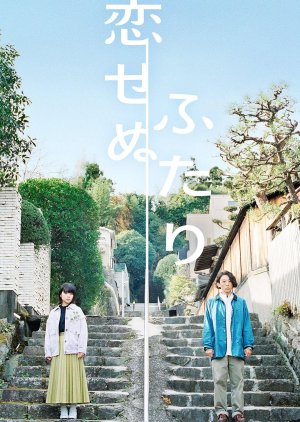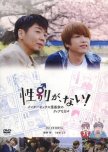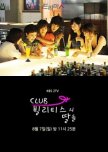
Both are about two people that start living together platonically, and both have aromantic representation.

In Koisenu Futari, one character, Sakuko, figures out she is aromantic and asexual while the other main character, Takahashi, has already known that he is aroace for a while and is comfortable in his sexuality.
In Konya Sukiyaki Dayo, the main character Tokomo is aromantic and more like Takahashi in the way that she is already secure in knowing who she is.
Konya Sukiyaki Dayo and Koisenu Futari both focus on main characters who dismantel expectations and stereotypical ideas of how you should live and what you should do as an adult and in a relationship, and end up figuring out what works for them personally, even if it goes against typical roles of what society expects of them.
In addition, Konya Sukiyaki Dayo focuses on how a romantic and platonic relationship can be equal and the role of women in the workplace, while Koisenu Futari focuses more heavily on aromantic and asexual issues specifically.
Both have done a truly amazing job of representing how someone can be aromantic (and asexual), with characters that feel very real and create an example for a way of living as an aromantic asexual person in a world that focuses mostly on romantic relationships.
In Konya Sukiyaki Dayo, the main character Tokomo is aromantic and more like Takahashi in the way that she is already secure in knowing who she is.
Konya Sukiyaki Dayo and Koisenu Futari both focus on main characters who dismantel expectations and stereotypical ideas of how you should live and what you should do as an adult and in a relationship, and end up figuring out what works for them personally, even if it goes against typical roles of what society expects of them.
In addition, Konya Sukiyaki Dayo focuses on how a romantic and platonic relationship can be equal and the role of women in the workplace, while Koisenu Futari focuses more heavily on aromantic and asexual issues specifically.
Both have done a truly amazing job of representing how someone can be aromantic (and asexual), with characters that feel very real and create an example for a way of living as an aromantic asexual person in a world that focuses mostly on romantic relationships.

Both of them are talking about asexual relationship. Asexual, meaning little to no sexual attraction. As for watashi no shite kurenai pheromone kareshi, there is attraction going on for the girlfriend's side but only a little for the boyfriend's side. Nevertheless, both of them are good. Koisenu futari has a good review and rating.

Both shows explore how various norms around love and relationships hurt people, who don't fit them. Main characters learn how to break free from these boxes and find their own happiness. The theme of setting other people free and allowing them just to be, to grow, and to change, and how this doesn't mean that you must separate, is very important in both shows. Non-conventional families are at the center of both shows as well.




Haru works at a university’s library. She is not particular about her meals and is more interested in keeping up with information on her favourite manga through her smartphone. One random day, Haru becomes depressed by the words of pity she hears about herself every day. That night, she heads to her regular drinking spot to soothe her hurt. She gets drunk with an androgynous guy called Ao-kun and they hit it off. The two of them end up living under one roof on impulse. However, the rule for living together is to make lunch boxes for each other?

Both of these dramas explore LGBTQ+ and society themes without weighing down the overall comfortable atmosphere of the story and leads' dynamic. They very much show how the small, seemingly insignificant to others, comments and actions can have a longstanding impact - both for good and bad.
Both dramas also feature a foodie lead who shows they care through their cooking - and the addition of a new person in their lives brings about new realizations and a larger menu. There's also prominent self-realization and coming out scenes that are really resonating and self-empowering.
Both dramas also feature a foodie lead who shows they care through their cooking - and the addition of a new person in their lives brings about new realizations and a larger menu. There's also prominent self-realization and coming out scenes that are really resonating and self-empowering.






































